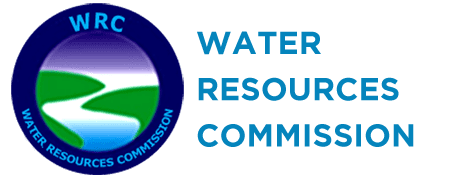Madam Dorcas Adwoa Paintsil, the Acting Executive Secretary of the Water Resources Commission has called on Ghanaians to mobilise efforts to attain the Sustainable Development Goal Six on access to safe water and good sanitation.
She said: “Looking at the target set by the UN to be achieved by countries globally at the end of 2030 and where we have reached as of 2023 globally, we may not be able to meet the goal six globally, and even Ghana as country, hence the need for all hands to be on deck.”
Madam Paintsil made the call in an interview with the Ghana News Agency when the Commission organised a Webinar in collaboration with the National Planning Committee and partners as part of series of activities to mark this year’s World Water Day.
The Day, which would come off on March 22, 2023 is on the theme: “Accelerating Change.”
The Webinar brought some experts in the water sector to share knowledge on the topic: “How Safe is the Water in your Home?”
The panellists were Madam Francisca Frimpong, Chief Scientific Officer with the Ghana Standard Authority, Engineer Frank Teye Oblim, Principal Technologist, CSIR – Water Research Institute, Madam Edna Mamle Tetteh, Water Quality Officer – Ghana Water Company Limited, and Mr James Obeng Gyedu, Head of Sales and Business Development – Poly Tank Ghana Limited.
Madam Paintsil said the World Water Day had been designated by the UN to raise awareness on how to use water and to bring to the fore the SDG six.
She described this year’s theme as appropriate because it is requesting everybody to be the change they want to see, saying “There is the need for all of us to mobilise our efforts to support the attainment of the goal so that everybody can have access to clean water and sanitation.”
Mrs Theodora Adomako-Adjei, Head of Extension Services Community Water and Sanitation Agency and the moderator of the discussion said according to a Multiple Indicator Cluster Survey that was undertaken in 2017 and 2018 in Ghana, the data indicated that 79 per cent of the population have access to water.
“But the same data indicated that 48 per cent of the population are at risk of drinking contaminated water and the worst aspect is even at the point of use,” she stated.
She said the SDG 6.1 expected that by 2030 the countries all over the world should have achieved universal and equitable access to safe water, and that the emphasis was on safe drinking water for all.
Mrs Adomako-Adjei explained that the criteria for safely managed drinking water service means that households must use an improved source that is accessible on the premises, available when needed and free from contamination.
She advised that the illegal activities around the country’s water bodies must be ceased forthwith to prevent water crisis.
Mr Oblim in his presentation said rainwater harvesting helped to prevent erosion and flooding and could be used for domestic chores such as washing of cars and gardening, but for drinking it must be properly treated.
Madam Tetteh on her part said the GWCL always ensured the supply of potable water to the citizenry and advised the public to put a stop to illegal water connection, avoid laying pipelines through drains, and engage professional in their plumbing works while cleaning their water containers regularly to avoid contamination.
Mr Gyedu entreated the public to engage the service of the Poly Tank Ghana Limited in the cleaning of their overhead water tanks at least twice a year.

















